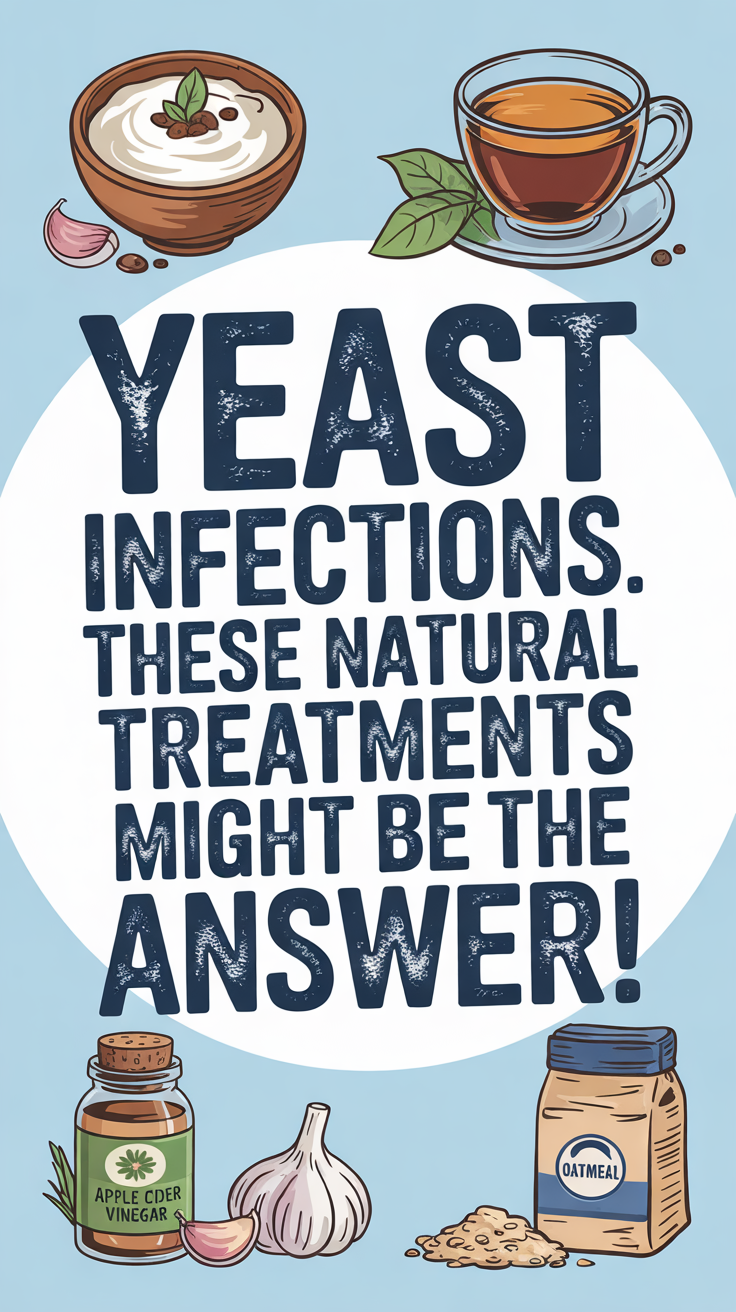Yeast Infections. These Natural Treatments Might Be the Answer!
If you’ve ever dealt with a yeast infection, you know how uncomfortable it can be. Many people seek relief through various methods, but some natural treatments might just be the answer you’re looking for. By making simple dietary changes and incorporating certain remedies into your routine, you can help restore balance to your body. Curious about how to take control of your health and alleviate those pesky symptoms? Let’s explore the options together.
Understanding Yeast Infections
When you think about yeast infections, it’s essential to understand what they really are. These infections occur when there’s an imbalance in the natural flora of your body, often due to factors like stress, diet, or antibiotics. Natural antifungal compounds can help combat this imbalance and restore health.
They’re more common than you might think, affecting many people. Knowing this can help you feel less isolated. Approximately 75% of women experience at least one yeast infection in their lifetime, highlighting the prevalence of this condition.
To tackle them, you’ll want to explore yeast infection remedies fast, like probiotics or natural antifungal options. These remedies can restore balance and promote healing, allowing you to reclaim your comfort and confidence.
Symptoms of Yeast Infections
Yeast infections can bring a range of uncomfortable symptoms that signal an imbalance in your body. You might notice itching, burning, and irritation in the affected area.
Discomfort during urination or sexual activity can also arise, making daily life challenging. Additionally, you may experience a thick, white discharge that resembles cottage cheese.
It’s important to remember that you’re not alone; many people face these symptoms at some point. Recognizing these signs early can help you seek the right treatment and find relief. Understanding the causes of yeast infections is essential for effective management.
Trust your instincts, and don’t hesitate to reach out for support when you need it.
Dietary Changes for Prevention
Making mindful dietary changes can significantly reduce your risk of developing yeast infections. Start by cutting back on sugar and refined carbs; they can feed yeast growth.
Instead, embrace whole foods like fruits, vegetables, and whole grains that nourish your body. Incorporating healthy fats, such as avocados and nuts, can also support your immune system.
Don’t forget to stay hydrated and limit alcohol, as it can disrupt your balance. You’re not alone on this journey—many have found success through these simple changes.
Probiotics and Their Benefits
Probiotics are powerful allies in maintaining your health, especially when it comes to preventing yeast infections.
These beneficial bacteria help restore balance in your gut and vaginal flora, making it harder for yeast to thrive.
Incorporating probiotics into your routine can bring numerous benefits:
- Boosting your immune system
- Reducing inflammation
- Supporting digestive health
Essential Oils for Treatment
While you explore natural remedies for yeast infections, essential oils can offer potent antifungal properties. Oils like tea tree, lavender, and oregano are known for their effectiveness against yeast.
You can dilute these oils with a carrier oil, like coconut or olive oil, and apply them topically to affected areas. Just remember to perform a patch test first to avoid irritation. According to research, essential oils have been shown to combat Candida albicans effectively.
Incorporating these oils into your routine can help you feel empowered in your healing journey. Many people in your community have found relief this way, and you’re not alone in seeking natural solutions for this common issue.
Herbal Remedies to Consider
If you’re exploring natural treatments for yeast infections, herbal remedies can be a valuable addition to your toolkit.
These time-tested options may help support your body’s healing process. Consider incorporating these herbs into your routine:
-
Garlic: Known for its antifungal properties, garlic can be a potent ally against yeast overgrowth and is considered effective in restoring natural balance. Studies have shown that garlic can help reduce Candida overgrowth due to its antifungal effects.
-
Cranberry: This fruit not only promotes urinary tract health but may also help maintain vaginal balance by preventing the growth of harmful bacteria.
-
Tea Tree Oil: With its antiseptic qualities, diluted tea tree oil can offer soothing relief. Natural remedies restore vaginal pH balance, preventing Candida overgrowth.
Always remember to consult with a healthcare professional before starting any new treatment.
You’re not alone on this journey!
Maintaining Good Hygiene Practices
Good hygiene practices are essential in preventing yeast infections and promoting overall vaginal health.
Start by keeping your genital area clean and dry; wash daily with mild soap and water. After bathing, gently pat the area dry instead of rubbing.
Wear breathable, cotton underwear to help keep moisture at bay. Avoid tight-fitting clothing and opt for loose-fitting, breathable fabrics.
If you’re prone to yeast infections, try to limit your use of scented products and avoid douching.
When to Seek Medical Advice
When should you consider seeking medical advice for a yeast infection? If your symptoms persist despite home remedies, it’s time to reach out for help. You shouldn’t have to navigate this alone.
Look out for these signs:
- Your symptoms worsen or don’t improve after a week.
- You experience severe pain, swelling, or unusual discharge.
- You have recurrent infections (more than four a year).

